Pope Francis washed the feet of 12 imprisoned women from his wheelchair to commemorate Holy Thursday.
The 87-year-old pontiff, who often calls for compassion for prisoners, visited the Rebibbia women’s prison, on the northeastern outskirts of Rome, where he performed the same rite in 2015.
Thursday, however, was the first time that the Argentine Jesuit dedicated his annual ritual during Holy Week solely to women.
Sitting in a wheelchair, the Pope washed the feet of each of the prisoners, some of them crying, before drying them with a towel and kissing them.
“We all have small failures, big failures,” the pope said in an impromptu homily during a Mass celebrated in the courtyard of the prison that houses about 370 women.
“But the Lord always awaits us, with open arms, and never tires of forgiving,” he added.
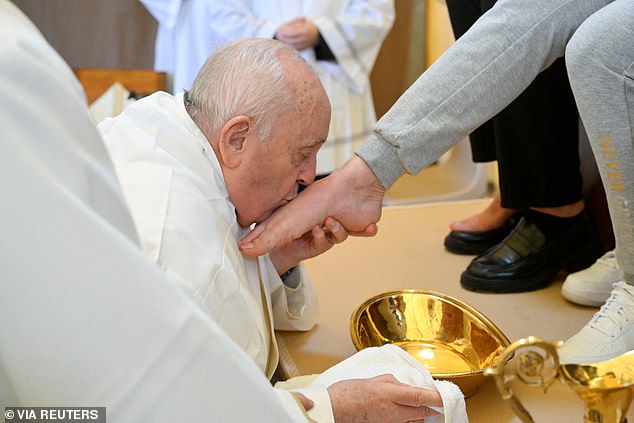
Pope Francis kisses the feet of an inmate from the female section of the Rebibbia prison during a Holy Thursday ritual
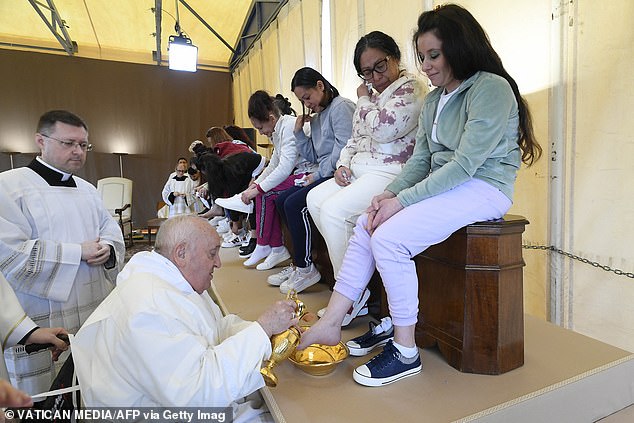

Pope Francis washes the feet of inmates during a private visit to the prison
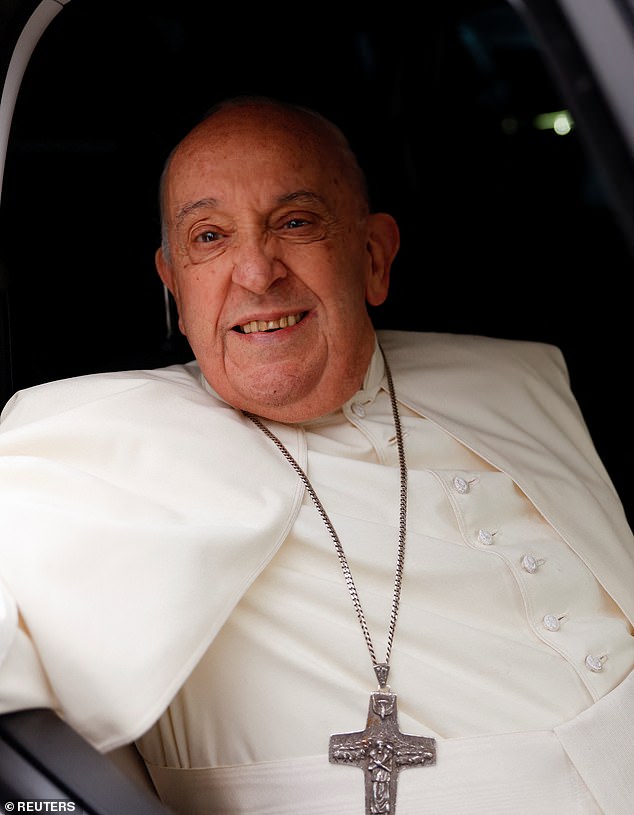

Pope Francis smiles as he leaves after visiting the women’s section of the Rebibbia prison
Washing the feet is “a gesture that draws our attention to the vocation of service,” said Francis, who as a priest in Buenos Aires had already begun visiting prisoners.
A few minutes earlier, the pontiff was all smiles as he shook hands with inmates.
In England, the Archbishop of Canterbury, Justin Welby, also performed foot washing at St Paul’s Church in Maidstone, Kent.
Last month, the Pope came down with the flu, forcing him to cancel some public meetings. During his subsequent recovery, he on several occasions asked others to read his speeches.
In Christian tradition, Maundy Thursday commemorates the day when Christ washed the apostles’ feet at the Last Supper.
It is a highlight of Holy Week, which commemorates the last days of Christ before his resurrection at Easter.
Since becoming pope in 2013, the head of the Catholic Church has frequently visited prisons and refugee centers, including on Maundy Thursday last year, when he visited a youth detention center and washed the feet of 12 young people.
On Good Friday he will preside over the ‘Way of the Cross’ at the Colosseum in Rome, which he could not attend last year because he was recovering from a bronchial infection.
Pope Francis looked good as he began four intense days of pre-Easter events and renewed his own ordination vow.
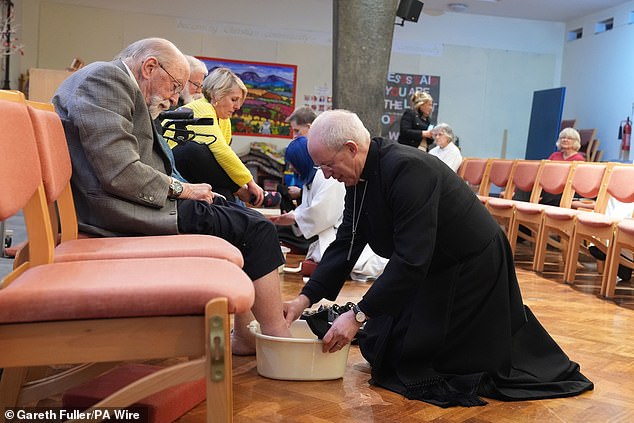

The Archbishop of Canterbury, Justin Welby, performs the Washing of the Feet ceremony during the Sung Eucharist and Holy Thursday Liturgy at St Paul’s Church, Maidstone.
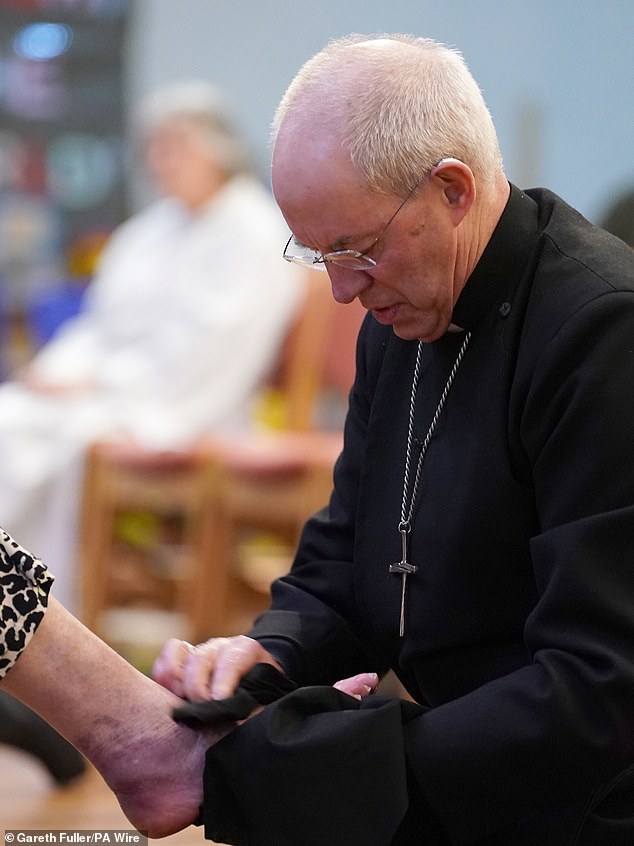

The Archbishop performs the washing of the feet on Holy Thursday, the eve of Good Friday
Francis, who recently reduced his speaking engagements due to fatigue related to bouts of bronchitis and influenza, read a long homily during the Holy Thursday “Chrism Mass” in St. Peter’s Basilica.
He also saluted two bereaved parents whose story was told in a 2020 novel by Irish author Colum McCann.
The Pope noted that there were two people in the Vatican’s Paul VI audience room – “two fathers” – one Palestinian and the other Israeli.
Bassam Aramin’s daughter Abir was murdered in 2007 by an Israeli soldier as she left school; Rami Elhanan’s daughter Smadar was killed in a 1997 attack in Jerusalem.
The story of the two men’s friendship was told in the novel ‘Apeirogon’ by Colum McCann, who met with Pope Francis during an audience with artists on June 23, 2023.
“Let us think about the beautiful testimony of these two people who suffered the war in the Holy Land with the loss of their daughters,” the Pope said.
During the service, Francis urged priests to be compassionate, admit when they have “deviated from the path of holiness” and avoid dishonesty and hypocrisy.
Tomorrow he will preside over an Easter Vigil service and then, on Easter Sunday, he will read his semi-annual ‘Urbi et Orbi’ message and blessing from the central balcony of St Peter’s to tens of thousands of people in the square below.
